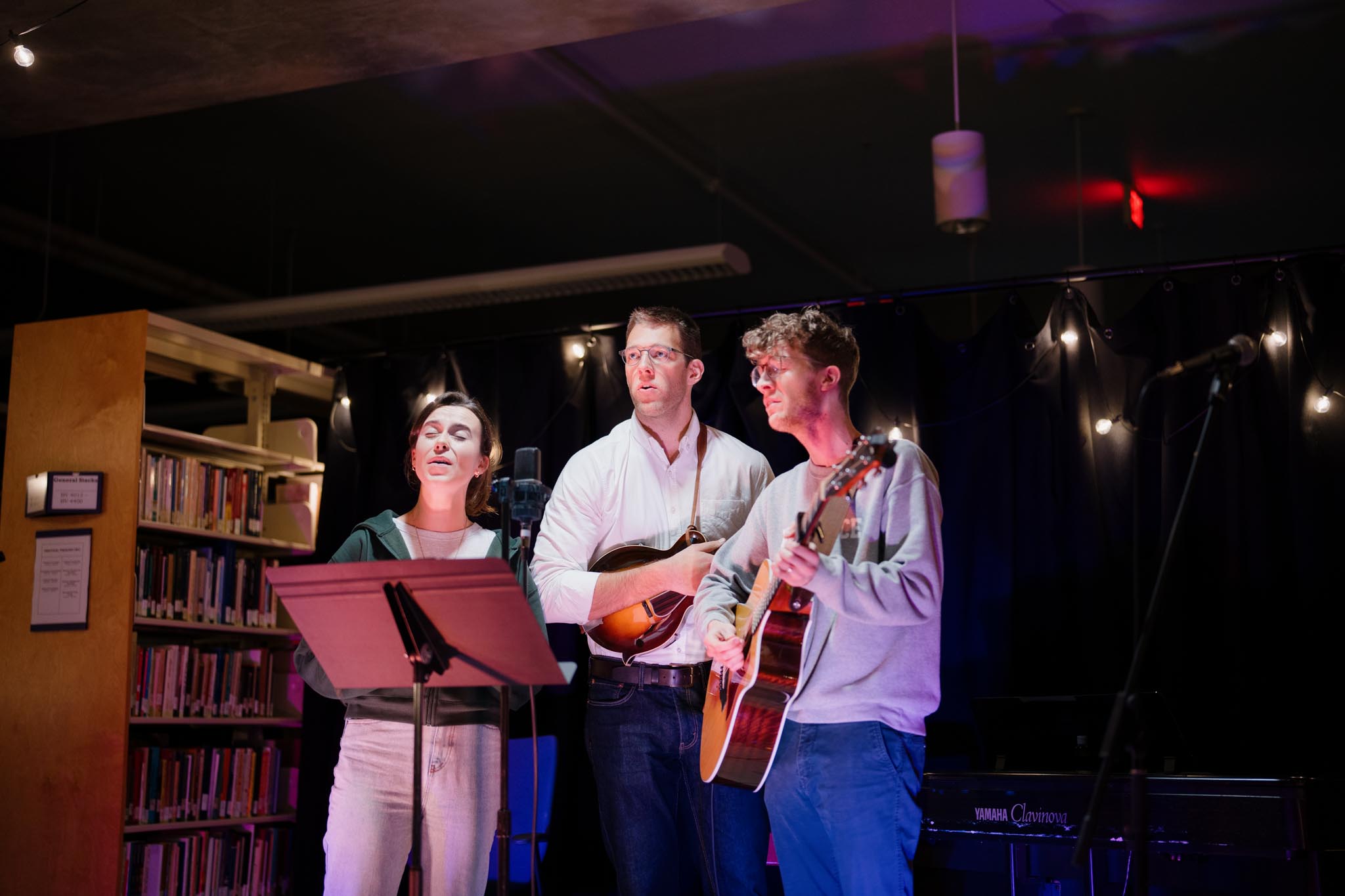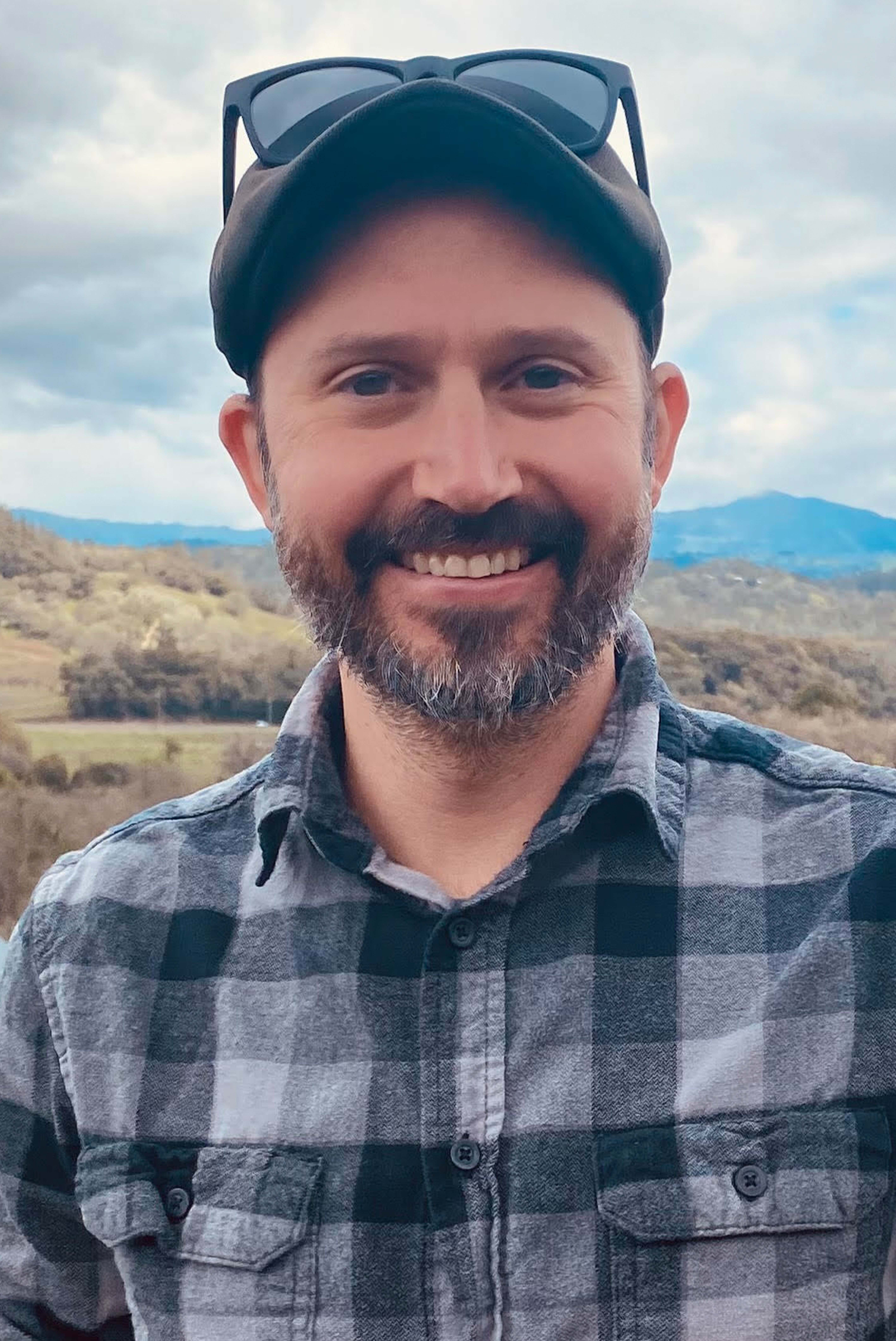When I was younger I often mused about what would make it into Heaven. Were there any human creations that would survive? It was easy to discount physical structures as persisting given the rather immaterial view I had of Heaven at the time. But what about more abstract creations like poetry, or song? If we remain in any sense ourselves after death, surely we would be able to remember, and reproduce, such art in Heaven? Never mind that the question can only be answered speculatively, and that it may depend on cultural rather than biblical assumptions about the nature of Heaven. Human creativity is an essential part of our nature, that we are in fact invited by God to create in a way that matters, following God's own creative acts.Still, the beautiful and (I think) true insight embedded in the question is that human creativity is an essential part of our nature, that we are in fact invited by God to create in a way that matters, following God's own creative acts.
One of the primary ways that creation takes shape in my life is through music. I've been captivated by it, and composing it, since I was quite young. I never pursued it with the intensity of those who go on to become masters of an instrument or style. Instead I learned just enough to make songs that I felt expressed something of myself, and that were of a quality that matched my expectations at any given stage of personal development (which is to say: they started out quite badly!). The many songs I've released over my "career" have not done much in the world, as far as I can tell from a quantitative perspective, but this has never been the point for me. Songwriting is something I feel compelled to do, whether I pursue the life of a professional musician or not. And so, in some of my earlier fantasies about life in Heaven, I imagined spending some small slice of eternity listening to or performing every song written since the beginning of time! I dreamed of a place where my creations, along with everyone else's, might have a kind of eternal life of their own, in virtue of their reflecting the divine gift of creativity.
But what about AI-generated songs? Will they end up in Heaven?
Until recently, AI-produced music was a topic of merely philosophical interest. With the advent of the Generative AI (GenAI) boom and tools like ChatGPT, however, much of humanity now has easy access to an interface for describing desired artistic outcomes. These descriptions are turned into digital reality by a kind of virtual ghostwriter (or automated genie, if you prefer). Nowadays, anyone can say, "write me a tenderhearted love song in the style of an 80s rock ballad," and get something novel back from the machine that sounds (surprisingly) better than random noise. In the capstone project for my recently-completed ThM at Regent, I explored some philosophical and theological implications of this radically new approach to "creating" (where I put the word in quotes precisely because I doubt whether the term applies in the traditional sense to the act of using GenAI).
In taking the Fruit, Adam and Eve "cut short" the trust that God would take care of them and grant them appropriate wisdom at the appropriate time. What are we cutting short when asking a machine to write songs on our behalf? In that project, I compared our newfound GenAI-based ability to bypass the traditional mechanisms for acquiring skill to the desire of Adam and Eve to bypass whatever slow process of waiting or maturing might have made them eligible for the Fruit of the forbidden tree. Adam and Eve wanted the benefits of the fruit now, and we want the benefits of years of artistic development now (or with more ease, or less boredom, or whatever), in the form of AI-generated artifacts. In Genesis, the first humans used the Fruit as a device very much akin to what we have with advanced technology: something designed to procure a good for them without making any demands upon their skill or maturity. The great thing about devices is that they are always shortcuts; the awful thing about devices is that whether it's actually good for us to use them depends a lot on what exactly we're cutting short! In taking the Fruit, Adam and Eve "cut short" the trust that God would take care of them and grant them appropriate wisdom at the appropriate time. What are we cutting short when asking a machine to write songs on our behalf?
The proponents of the AI revolution tell us that we are simply cutting short the tedious repetitive slog associated with making things. What matters is the idea in our heads! And with ChatGPT, we can speak that idea into existence instantly, rather like the strange Gnostic version of creation that involves a waterfall of deities and creative acts taking place at increasing remove from their ultimate source. If the end product is of sufficient quality, why not avail ourselves of these creative superpowers, especially in cases where we don't have the training or skill to produce the artifact ourselves? Chief among the numerous fallacies embedded in these arguments is the notion that creative endeavours are primarily about an "end product" in the first place. Let's highlight the fallacy theologically: if God was primarily concerned about the most efficient path to the "end product" envisioned in the biblical narrative, then involving humans in the affair at all was surely a huge mistake! No, God seems to care about the development of humankind just as much or more than getting them as quickly as possible to some final state.
It is precisely this essence of development that permeates the creative process. We encounter the rough edges of a messy world, and that experience calls forth creative expression, whether to solve a problem or to share a feeling or an insight with our fellow humans. Our initial expressions are imperfect, and so we develop further in our craft, by honing our expressive abilities and the way we use tools like musical instruments or paint brushes. Crucially, the more we develop creatively in this way, the more the tools we use become a transparent extension of our thought, new appendages which obey our instincts the way our natural limbs do. This contrasts deeply with GenAI use, wherein we cede all the mechanics of the process to the tool. The more time I spend with my guitar, the more it becomes a part of me, body and mind. When I use ChatGPT, however, I merely serve as the input to the tool, which itself arrogates the role of agent. With both traditional and GenAI-based creative processes, the outcome involves the appearance of a new creative artifact, but only with the traditional process do I become something more as a result.
So far I've just been talking about the side of the artistic equation involving production, but I think we can say a lot of the same things about consumption as well. When I listen to a song that expresses some feeling, however simple or complex, I'm moved by the song to the extent that I believe the songwriter was also moved. If I discover that, in fact, the songwriter was an AI and not a person, has had no experiences of love or loss, and has no connection to the imagery in the lyrics, the song becomes a sheer artifact. It's an accidental arrangement of pleasing correspondences derived from training data, walking around as a sort of zombie stitched together from bits of formerly living art. What makes art living and meaningful is the human story behind it, or even the mere trust that there was some human story behind it. We can ask ourselves, what led to that choice of instrumentation? Why use that chord that sounds so out of place in such a bright song? Were those lyrics about a real or imagined story? And so on. I can say with confidence that I would listen with more gratitude to the well-intended but awkwardly bad attempt of one of my friends to play an original song than to the technically flawless output of an AI model.
I would like to think that I am not alone in this way of viewing things. My hope is that, in retrospect, we will view the "GenAI revolution," at least in terms of its place in the creative process, as a fad with little staying power compared to the magnetism of "unmediated" human expression. My hope is that, after getting bored of writing a hundred songs a day using ChatGPT, young musicians would be inspired to climb the mountain of skill associated with learning and performing with an instrument. In the same way that we now hold artisans using traditional methods in high esteem, and see them as standing out from a sea of disposable objects of industrialization, I hope we will attach special importance to musicians and artists who eschew the shortcut of AI in favour of a developing creative practice which changes them so they can speak fruitfully to us.
So no, I don't think AI-generated music will be featured in Heaven, for how can something that never came from a soul find any room there? (Now, before you go and lament the eternal loss of your GenAI chat output, I might be willing to grant that the prompts will survive, even though it may be after the fashion of the proverbial builder in 1 Corinthians 3: "as one escaping through the flames"!)

